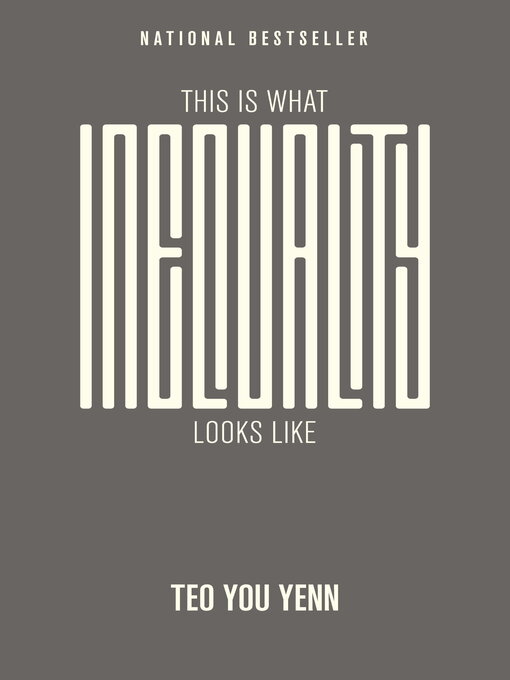NATIONAL BESTSELLER
This New Edition of This Is What Inequality Looks Like by Teo You Yenn features a new Afterword by the author, and a Foreword by Kwok Kian Woon, Professor of Sociology at the Nanyang Technological University, Singapore.
What is poverty? What is inequality? How are they connected? How are they reproduced? How might they be overcome? Why should we try?
The way we frame our questions shapes the way we see solutions. This book does what appears to be a no-brainer task, but one that is missing and important: it asks readers to pose questions in different ways, to shift the vantage point from which they view ‘common sense,’ and in so doing, to see themselves as part of problems and potential solutions. This is a book about how seeing poverty entails confronting inequality. It is about how acknowledging poverty and inequality leads to uncomfortable revelations about our society and ourselves. And it is about how once we see, we cannot, must not, unsee.
- Newly Added eBooks - Available Now
- The Hit List (Books We Love)
- Top 500 eBook Fiction
- Top 500 eBook Nonfiction
- Popular Romance
- Books you may have missed
- Health & Fitness
- Fantasy
- Historical Fiction
- Thrillers
- Crime
- Self-Enrichment
- Humour
- See all ebooks collections
- Newly Added Audiobooks - Available Now
- Top 500 Audiobook Fiction
- Top 500 Audiobook Nonfiction
- Business & Management
- Self-Enrichment
- Thrillers
- Foreign Language Study
- Humour
- See all audiobooks collections
- Newly Added
- Children’s Favorite Characters
- Most Popular Children's Titles
- Comic & Graphic Books
- Children's Read-Alongs
- Popular Teen Reads
- Science Fiction & Fantasy - Available Now
- Popular eBooks
- See all children & teen collections
- Chinese Titles - Adult
- Chinese Titles - Young Adults
- Chinese Titles - Children's
- 中文书籍
- Malay Titles - Adults
- Malay Titles - Young Adults
- Malay Titles - Children's
- Tamil Titles
- Tamil Titles - Children's
- See all language collections collections
